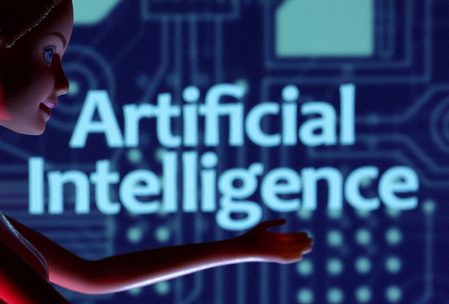[OPINION] Rogue AI is a WMD
The United Nations should specifically ban the development of AI that is capable of deploying weapons of mass destruction without the prompt of a person
No one wants to talk about it, but we need to. Rouge Artificial Intelligence (RAI) must be classified as a weapon of mass destruction (WMD) by the United Nations through a declaration, to pave the way for stringent protocol on the safe development of AI.
WMDs are presently recognized by treaties as weapons which are nuclear, chemical, and biological in nature. This ignores the reality that AI, regardless of which state develops it and for what purpose, may go rogue and end up utilizing the arsenal of presently defined WMD against any state.
The concept of mutually assured destruction (MAD), which keeps nuclear armed states from engaging in first strike against one another, does not apply to an AI, as the latter may not be bound by human loyalty of state or the preservation of physical life. In other words, AI which can use pre-existing WMDs without the consent or control of a human operator makes it just as dangerous as the WMDs it may have control over thus the necessity for its WMD classification.
Not all AI should be banned.
While there are numerous forms of AI which are dangerous, the UN should specifically ban only the development of AI capable of deploying WMDs without the prompt of a person. It is specifically this type of AI that I believe will be the easiest for states with WMDs and the rest of the global community to ban because of two reasons.
Access and deployment
First, the non-proliferation and the strict use against WMDs is already well ratified through various treaties and the addition of RAI merely modernizes and reinforces preexisting obligations. Party states to these treaties have avoided using WMDs against one another (otherwise none of us would be here reading this) for obvious reasons. Therefore, why would they not be interested in prohibiting an entity, not aligned with anyone, from doing the same?
Second, the ban is very specific to AI which may gain access to the deployment of WMD and acts without the prompt of a person. It therefore leaves room for the development of safe AI which are already supported by the UN such as ones that aid in humanitarian and scientific endeavors as mentioned by Unesco.
It is not contested by specialized agencies in different states and technology experts alike that AI poses a serious threat, whether that be through cybersecurity or the above-mentioned scenario. Despite this, there has been no firm joint statement by the international community or the United Nations universally banning the development of AI which might go rouge with a state’s nuclear arsenal.
Even now, private and government entities are heavily invested in the advancement of AI not only for commercial and scientific purposes but also to make present weapons smarter or to design new weapons which could not have been imagined without the help of AI. While there are treaties such as the Nuclear Non-Proliferation Treaty of 1970, which deals with the prevention of spreading nuclear weapons and there disarmament, there is no similar treaty outright banning practices which may inadvertently lead to the creation of a rogue AI. The mentioned treaty is heralded by the UN as the “cornerstone of the global nuclear non-proliferate regime.” No such “cornerstone” treaty exists with respect to rouge AI.
A UN declaration is not the solution, but it is the beginning of one.
The latter will achieve creating not only a global consensus on the vulnerability of our military equipment through unintended AI hijacking but will also put technology companies on notice that AI research and development, across the world, must be more firmly regulated to prevent catastrophe. Future work could focus on enumerating specific aspects of AI development which may lead to RAI which should be banned. This can be followed by the proposal of a task force, like the ones sent to North Korea in the past, either UN or state formed meant to oversee compliance from private and government institution.
We created the label “WMD” well after they were used on people (Hiroshima and Nagasaki). We should not wait for the birth of Rogue Artificial Intelligence before we begin labelling it. Waiting in fact may prove fatal. – Rappler.com
Rafael Lorenzo Conejos is a lawyer, Youtube Tech content creator on Hardware Sugar, and holds a master of law specializing in intellectual property law from the George Washington University. On his spare time he writes short stories and reads scholarly articles on AI and privacy law.


